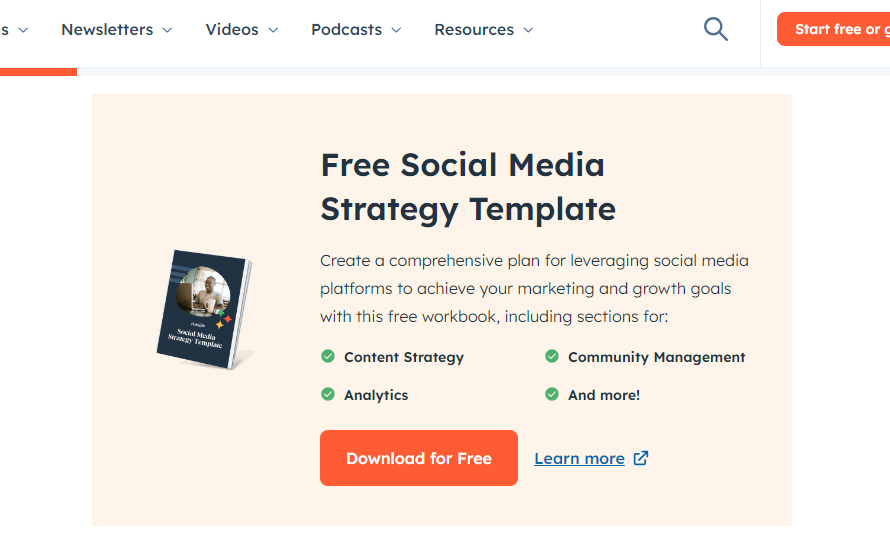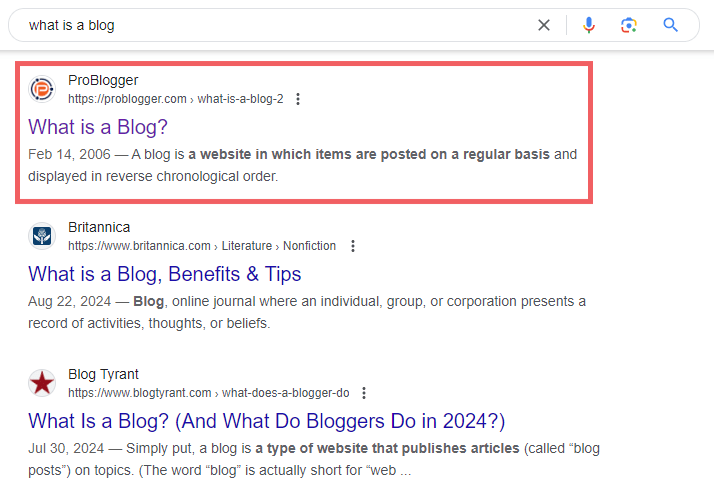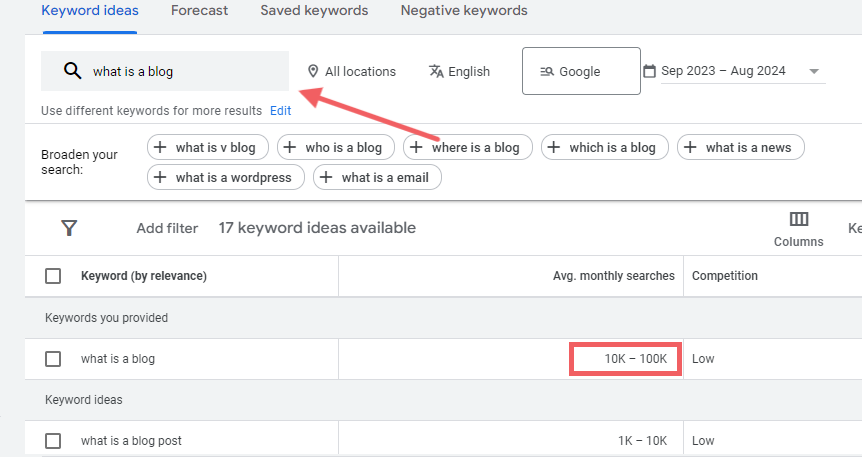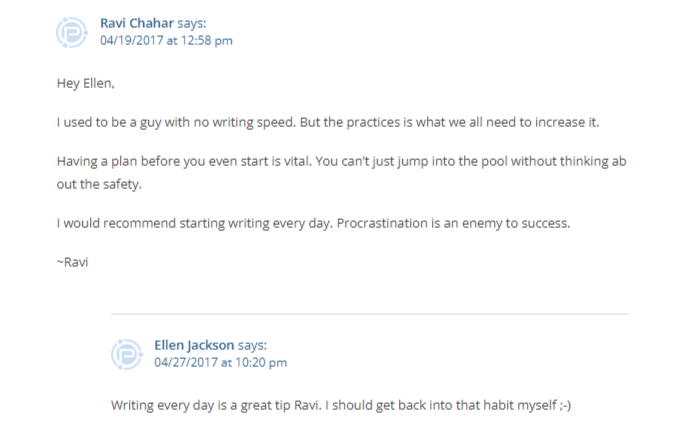We already know that there are billions of people worldwide who are connected to the internet. And we hope to get their attention and do business with them.
But what we don’t know yet is how to reach them effectively by breaking into the noise and without hurting our marketing budget.
So in this post, I will share with you the benefits of blogging for your small business and tips on how you can get started.
The benefits of blogging for small business
1. Increased online visibility
If you already have a business/company website but don’t have a blog yet, then you’re missing a lot of opportunities online.
Don’t get me wrong. Having a website is a great investment already because it offers many benefits to your business. However, having a blog amplifies your existing website when increasing your online visibility.
Here’s how it works.
Websites usually consist of static pages, where it doesn’t require regular updates like home, about, products or services, and contact us pages.
And when it’s done, it should be enough to impress your customers and have a decent online presence.
But if you like to show up more on search engine results pages (SERPs), then you’re gonna need a lot of web pages. Because search engines like Google rank based on individual pages, and not the whole website/blog site.
And like static web pages, blog posts are considered individual pages.
So the more pages you have, the more chances of showing up on SERPs.
This practice of ranking web/blog pages on Google is called search engine optimization (SEO).
Plus, blog posts can be easily shared on social media, like the social sharing icons that you will see at the bottom of this post.
So if an audience likes your blog post, they will be more likely to share it on their social profiles. Then when their friends see and open that post, you’ll get more traffic back to your blog post.
2. Establish authority in your industry
Your target audience encounters different problems in their lives every day. And Blogs are great resources for providing these answers to it.
Let’s take Shopify’s blog as an example.
Shopify is one of the leading ecommerce platforms today. They become a go-to platform not just because of their products, but for how helpful their blogs are.
They talk on their blogs about how to start an online business, give tips on business ideas, and how to promote your business.
And these are real-life problems that every aspiring entrepreneur has.
So when a business blogs regularly and provides helpful content, they become recognized experts and thought leaders in their industry.
3. Boost lead generation
Blogs are an effective way to generate leads. And you can easily place calls-to-action anywhere on your blog.
Once the user gets the value from your blog and it answers their problems, then they are more likely to engage more with the business.
There are different lead magnets that you can try on your blogs to capture leads like a free ebook, free trial, and product demo in exchange for their contact details.
And once you’ve got their information, you can then continue to nurture those leads through email marketing.
Here’s an example of what Hubspot does to generate leads on their blog posts.

You’ll get a free social media template from Hubspot, and in return, Hubspot will then get your contact details. It’s a win-win for all.
4. Cost-effective marketing strategy
What I like most about blogging is that even years after it was originally published, it continues to bring traffic to your business.
Take a look at this blog post from ProBlogger on SERPs.

It was published in 2006 but is still showing up on the first page on Google. Can you imagine how much traffic it gets every day in more than 18 years with just one blog post?
And when you check the average monthly search volume for keywords “what is a blog” on SEO tools like Google Keyword Planner, it appears to have a 10k-100k avg. monthly searches to date.
ProBlogger is getting decent traffic on that blog post for sure.

Unlike paid ads, your brand exposure stops once you stop paying for it.
And it will cost you an arm and a leg just by running ads. Because based on surveys, most businesses spend around $1-$500 a month on Facebook ads and $100-$10,000 for Google ads a month.
Well, that won’t be a problem if you have the marketing budget. And for some cases, you may need to combine inbound and outbound marketing strategies to get the best results.
But still, having a blog puts you at a higher advantage than those who don’t.
5. Support social media marketing
Now, you won’t have to think about what to post next on your social media accounts. Because by blogging for business, you can reuse and share your blog posts on different social media platforms.
Sharing your blog posts is a great way to promote your blogs, spark engagement, and have a consistent flow of content across platforms.
Plus, your followers can easily share your blog posts on their accounts.
6. Engage your audience and build relationships
If you think that you’re only limited to social media like Facebook and YouTube to engage with your audience, you are wrong. Because blogging is a great platform for engaging with your audience too.
And it’s possible by asking questions on your blog posts and allowing users to leave comments to keep them engaged.
If you have been following me on FaultyBlogger, I’ve been asking questions before I end my post to engage with my audience.
However, since FaultyBlogger is relatively new, it doesn’t have many users engaging in the comments section yet.
So now let’s have a look for other successful blogs online with a good amount of engagement and let’s take on one of ProBlogger’s blog posts again as an example.

When you look at the comment section, you can see that different users are joining the conversation. And that they are helping one another, making blogging a great platform for engaging with your audience and building relationships.
7. Add more income stream
Aside from the profit you make on your products or services, blogging can also add more income for the business.
In fact, a business can earn up to 6-7 figures a year alone just for its blog if it’s executed very well.
And it’s possible through direct and indirect income streams that you can make from blogging. But keep in mind that not all monetization strategies work for every business.
So try to experiment on different ways your blog can provide more income for you.
8. Improve customer trust and loyalty
When you offer valuable and informative content like educating your audience on topics that they don’t understand, assisting them in choosing the right products, to updating them on industry trends, it can foster trust and loyalty.
Sometimes it’s best to stay away from selling and start providing real value.
Now this may sound like taking a lot of work, but it will be worth it. Because acquiring a new customer costs five times more than retaining an existing customer.
And just by simply blogging for your small business, you can make your customers loyal to your brand.
Tips on how to start blogging for business
If you already have a website, then you can easily add WordPress as your blogging platform. It’s powerful, highly customizable, and free.
And you can simply ask your web designer to do this for you or do it yourself if you know how to use WordPress.
But if you don’t have a website yet, here are the options you have:
- Hire a web designer – Depending on your budget, you can hire in-house, an agency, or a freelancer on Fiverr and Upwork.
- Partner with a web designer – This is a great option because you won’t be paying a salary, but work together as partners.
- Do it yourself – if you don’t feel like hiring or partnering with a web designer, then you can learn to do it yourself.
Starting a website today is much easier than before. There’s no need for you to learn how to code and will cost you just under $100.
And there are lots of helpful tutorials online to help beginners like you.
So to get started, I’d highly recommend learning WordPress as your platform for your website and blogs. And here is a beginner-friendly tutorial on YouTube from Charlie Chang that you can easily follow.
Final thoughts
With so many benefits that blogging can give to a small business, no wonder why most successful companies incorporate it with their digital marketing.
However, the next challenge would be creating valuable content that your readers may want to read and share.
But don’t worry, because Plankton Media is committed to helping small businesses like yours to thrive online.
So to learn more about blogging for business and digital marketing, consider reading our blogs regularly.
We write topics like SMM (social media marketing), SEO (search engine optimization), PPC (pay-per-click marketing), content marketing, and email marketing.
Are you ready to start incorporating blogging into your small business? Let me know in the comments below.
Featured image credit: Tima Miroshnichenko
I’m the founder of Plankton Media, and I help small businesses thrive online. In my free time, you will find me chasing sunsets at the beach or playing basketball with friends. I also write entrepreneurship on my Personal blog and how to make money blogging on FaultyBlogger.
